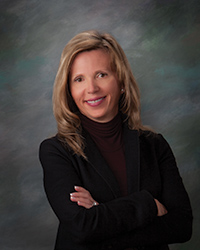News
Chico Evolution Is Happening Very Fast
Heidi Chico Heidi Chico is nearing the end of her term as National Automatic Merchandising Association chair, the culmination of 12 years of service on the NAMA board. That board membership began at the start of a turbulent time, with the global financial crisis causing a seismic shift in the U.S. economy. Chico, a third-generation industry member, credits NAMA with playing a major role in the transformation of the workplace services industry. "The association has concentrated on helping its members add...
April 25, 2018
 |
| Heidi Chico |
Chico, a third-generation industry member, credits NAMA with playing a major role in the transformation of the workplace services industry. "The association has concentrated on helping its members add services and adapt to the new business environment," she said. "We're focusing on convenience as the quality that defines the services our members provide: not just vending but micromarkets, coffee services, on-location microkitchens and pantries."
The industry always has been adaptable, she noted, but the present day requires concurrent adaptations in all aspects of a convenience services business. The ability to tailor different but complementary services to the specific needs of each location requires operators to take a new look at inventory and supply-chain management, from applying automation to pre-kitting route orders to reducing the amount of cash tied up in inventory by more sophisticated demand forecasting and ordering.
"The idea is to shift investment from the warehouse to the client," she explained. She predicts that suppliers will do more to expedite this shift, making it easier to provide service across the "last mile."
And controlling overhead costs always has been important, but never as crucial as it is today. These issues have been addressed repeatedly in NAMA's educational programs.
NAMA's operator members have skills that open up entirely new possibilities in today's demanding environment. "Vending and coffee service operators actually are small-drop distribution experts," Chico told VT. "They've shown that they can provide their customers with timely delivery of food and beverages, but also office and janitorial supplies," she pointed out. This skill has enabled the industry to withstand competition from much larger competitors who lack those skills, which suggests a range of potential partnerships.
"NAMA is helping operators enter new channels through its networking opportunities and its advocacy," Chico continued. "The association has undergone a major transformation over the past six years," she said. "We've embraced advocacy, and our members have responded. The passion of this industry is outstanding."
NAMA's annual two-day "Fly-In" brings industry members together in Washington, DC, to visit legislators and their staff members, explaining the industry and its importance to the national economy. The participation in this event has grown steadily because of that passion; "You don't see it elsewhere," the NAMA chair observed.
Advocacy always has been important, and NAMA has done an effective job of fostering communication between industry, government and the academy. But this, too, has become more important as new service methods have developed. Micromarkets are one example; the association is working with public health agencies to ensure that food safety rules drafted for micromarkets are practical and feasible. "We've been under attack, but we've always been under attack," Chico said. The key to defending the industry is to be proactive, not reactive.
"New approaches raise new questions," Chico pointed out. "Take pantry services, for example. What are the tax implications of providing refreshments 'free' to employees?" NAMA strives to anticipate these issues, and to give a diverse membership a single voice in Washington and in state capitals. "We've got the numbers and the facts; we can answer tough questions," Chico said. "We build trust."
That membership diversity, signaled by NAMA's merger with the National Coffee Service Association in 1999, requires a new perspective. "We're a mature industry, but we need to look at ourselves a little differently," the outgoing NAMA chair suggested. "Our operators are in the convenience services industry. We deliver service; we know that job. We'll benefit by exploiting that skill by being first to market with profitable new services that we can start, keep stable during growth, and scale – services that make a difference."
The industry's manufacturers also are developing a new perspective. "At the Wittern Group, we don't just produce 'vending machines' – we control dispensing.
"Our members have vision; today, we've got to widen that vision," Chico emphasized. "It's exciting, but it requires continuing education." The NAMA Show is the primary resource for meeting that need.
"No one in this industry thinks it's just a job," the outgoing NAMA chair observed. "I couldn't be prouder of the industry; operators are my customers, and my inspiration. We rise to challenges; a threat is an invitation to inform, educate and find a solution. There are new business opportunities in the new workspace modes that are being developed; this is good for us.
"Evolution is happening very fast," Chico pointed out. "The breakroom has become a destination; in some cases, a lounge. It's connected; it's where networking happens. This industry can facilitate this transformation; it's up to us to communicate to clients and employees that we can help build connections. Employers today know that retention of capable associates is a key to survival and success. We can provide convenience and connection."
Chico concluded by observing that the NAMA Show is the one event at which education and networking come together; best practices are shared, and vision is sharpened. "Suppliers should want to share in this," she said. "I'm honored to be a part of it."
 ChatGPT
ChatGPT Grok
Grok Perplexity
Perplexity Claude
Claude






